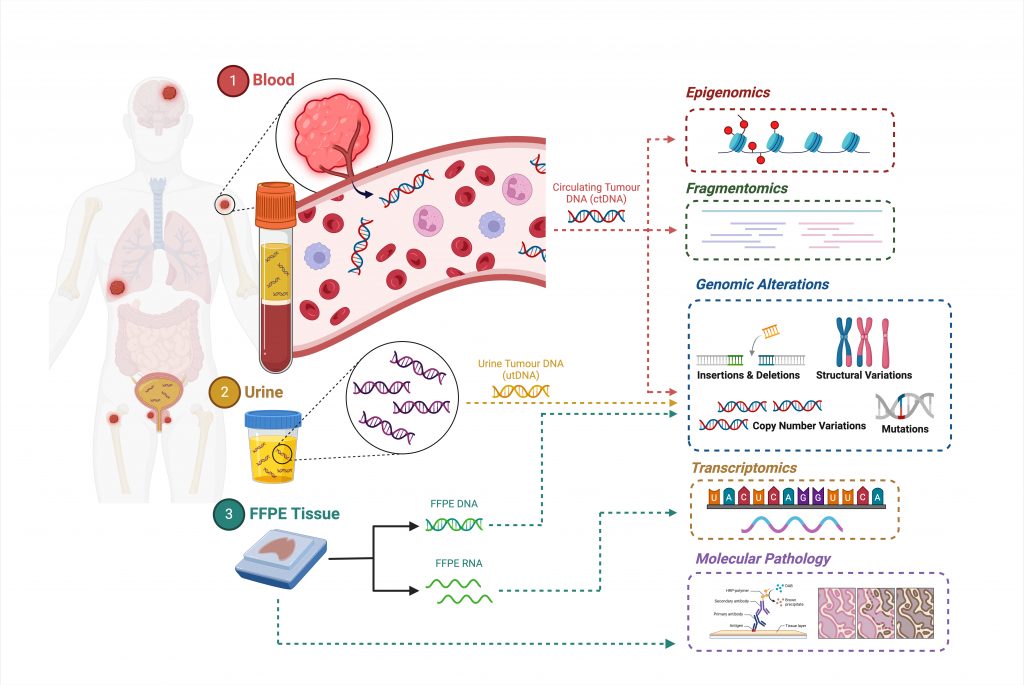
The Wyatt laboratory studies the genomics of lethal prostate and bladder cancer. We are located at the Vancouver Prostate Centre, part of the Department of Urologic Sciences at the University of British Columbia. Our overall objective is to use our experience in genitourinary cancer genomics and bioinformatics to enable real-time precision oncology in the clinic. To achieve this we perform a variety of innovative next-generation sequencing techniques on clinical specimens including tissue and liquid biopsies from individuals with metastatic prostate cancer and metastatic bladder cancer.
Our research is closely integrated with the clinic through several ongoing clinical trials with heavy correlative components and via collaborations with highly-experienced clinician-scientists. As a result of a decade of concerted efforts we bank thousands of blood, urine, and tissue samples per year from men with metastatic prostate cancer at first-, second- and third-line of therapy, and in the context of different therapies and clinical prognoses. Furthermore, due to recent grant funding from agencies including CIHR, the Prostate Cancer Foundation (PCF), Canadian Cancer Society Research Institute (CCSRI), and others, we carry out detailed genomic analyses of distinct cohorts from our trials and biobank. Ultimately, this will facilitate development of a suite of predictive biomarkers to allow selection of the best standard therapy for each patient. It will also reveal resistance mechanisms for existing treatments, and allow prioritization of patients at third-line for treatment with novel investigative agents.
Through a close collaboration with Dr. Kim Chi and the Canadian Cancer Trials Group (CCTG), we have operated Canada’s first major umbrella clinical trial for prostate cancer, where we use ctDNA-based genomic biomarkers to prospectively enroll patients for precision oncology. The Wyatt lab is committed to improving the lives of men with prostate cancer, and we are passionate about scientific research. In the long-term we hope that this will translate to paradigm-shifting results.